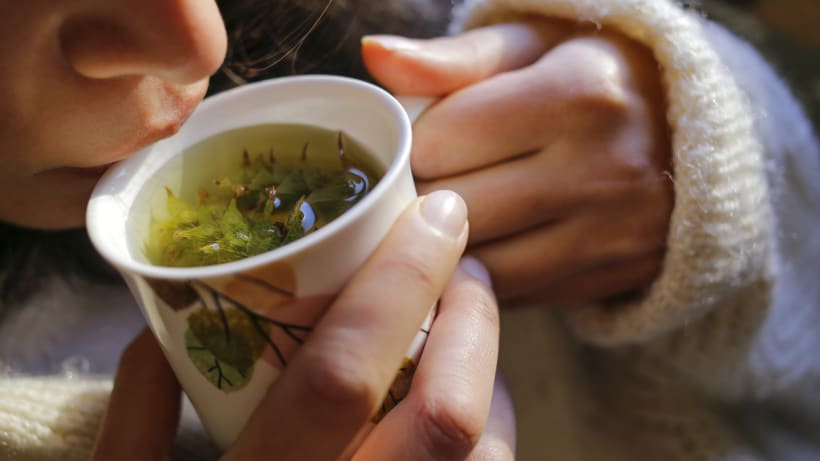12 Winter Wellness Tips to Stay Healthy
Winter can be a challenging season for maintaining good health. With shorter days, colder temperatures, and increased indoor confinement, the risk of illness rises.
However, many common illnesses can be treated at home with rest, fluids, and over-the-counter medications and you can reduce your risk of getting sick in the first place by keeping your immune system functioning at its best. Here's 12 ways to keep yourself well during winter.
1. Prioritize sleep
Aim for 7-9 hours of quality sleep each night. Sleep is crucial for immune function.
2. Manage stress
Chronic stress weakens the immune system. Incorporate relaxation techniques like meditation, yoga, or deep breathing into your routine.
3. Exercise regularly
While it might be tempting to hibernate, regular physical activity is essential for overall health and immunity. Layer up before you go outside.
- Start with a thermal base layer, add a sweater or fleece, and top it off with a warm coat.
- Don't forget to protect your extremities. Hats, scarves, gloves, and warm socks are essential.
- If you are someone that is not use to exercise, start slowly.
4. Keep hydrated
While you might not feel as thirsty in winter, your body still loses fluids through breathing and sweating. To stay hydrated:
- Drink regularly: Aim for consistent fluid intake throughout the day
- Warm beverages: Enjoy hot water, tea, or soup to stay hydrated and warm
- Electrolytes: Consider adding electrolytes to your drinks, especially if you're sweating or exercising
- Hydrating foods: Incorporate water-rich fruits and vegetables into your diet.
5. Nourish your body
Your gut is more than just a digestive organ; it's a vital part of your immune system. Home to trillions of bacteria, it helps fight off infections, absorbs nutrients, and produces immune cells. Maintaining a healthy gut is crucial for overall well-being.
- Boost your gut health by consuming plenty of fruits, vegetables, whole grains, nuts, and seeds.
- Incorporate probiotic-rich foods like yogurt and kefir.
- For added immune support, include garlic, ginger, and citrus fruits in your diet.
And if you are feeling unwell, don’t forget chicken soup. This classic comfort food is nutrient-rich and has anti-inflammatory effects, soothing a sore throat and congestion.
6. Be kind to your skin
Your skin is not only a protective covering, it is your immune system's first line of defense. Your skin acts as a shield, preventing bacteria, viruses, and other harmful substances from entering the body. It also contains immune cells that help fight off infections and alert the body to potential threats. Sunlight exposure on the skin triggers vitamin D synthesis, which plays a crucial role in immune function.
Maintaining skin health is essential for overall immunity, but winter weather can wreak havoc on your skin. Here's how to keep your skin hydrated and healthy to maintain its protective functions:
- Moisturize: Use a rich, hydrating moisturizer both day and night. Look for products containing ceramides, hyaluronic acid, or glycerin. Apply it as soon as you get out of the shower or bath
- Gentle cleansing: Choose a mild, fragrance-free cleanser to avoid stripping your skin of natural oils
- Lukewarm showers: Hot water can dry out your skin. Keep your showers lukewarm and limit your time in them
- Exfoliate gently: Exfoliate once or twice a week to remove dead skin cells, but be gentle
- Protect your skin: Don't forget to apply sunscreen, all year round, even in winter and especially if you are near snow
- Humidify: Use a humidifier to add moisture to the air, especially in your bedroom
- Lip care: Keep your lips hydrated with a high-quality lip balm containing SPF
- Hydrate from within: Drink plenty of water to keep your skin hydrated from the inside out.
7. Boost your winter mood with a light therapy lamp
Light therapy lamps can be a game-changer during the gloomy winter months. These devices mimic natural sunlight and can help alleviate symptoms of Seasonal Affective Disorder (SAD), a type of depression related to reduced sunlight exposure.
How do they work? By exposing yourself to bright light in the morning, you can help regulate your body's internal clock and boost serotonin levels, often referred to as the "happy hormone." This can lead to improved mood, energy levels, and overall well-being.
Tips for using a light therapy lamp:
- Consistency: Use the lamp for the same amount of time each day, typically 20-30 minutes
- Morning exposure: Exposing yourself to the light shortly after waking up is most effective
- Eye safety: Avoid looking directly at the light.
8. Maintain social connections
Winter can often lead to isolation as people spend more time indoors. However, maintaining social connections is crucial for mental and emotional well-being. Winter socializing reduces loneliness and isolation and releases endorphins, which can improve mood and reduce stress. Engaging in social activities stimulates the brain and can help prevent cognitive decline.
- Plan indoor activities: Consider hosting game nights, movie nights, or potluck dinners.
- Join social groups: Look for local clubs or groups with shared interests.
- Volunteer: Giving back to the community can be rewarding and connect you with others.
- Use technology: Stay connected with friends and family through video calls or social media.
Related questions
- 6 Sore throat remedies that work
- Can you have pneumonia without a cough?
- What antibiotics are used to treat bronchitis?
9. Try home remedies for common ailments
Many common winter ailments can be managed with home remedies:
Sore throats
Gargling with warm salt water can soothe a sore throat. Honey and lemon tea can also provide relief. The following herbs have been traditionally used to soothe sore throats, although if you are pregnant or have underlying health conditions, talk to your doctor or pharmacist before taking them:
- Licorice root: Known for its anti-inflammatory properties, licorice can help reduce throat irritation. It's often found in lozenges or teas.
- Marshmallow root: This herb has a soothing effect on the throat and can help coat irritated tissues.
- Sage: With its anti-inflammatory and antiseptic properties, sage can be used as a gargle or in tea.
- Echinacea: While primarily known for boosting immunity, echinacea can also help reduce inflammation in the throat.
- Ginger: Known for its anti-inflammatory properties, ginger can help soothe a sore throat when added to tea or consumed as a lozenge.
Herbal teas made from chamomile, peppermint, or elderberry may also be used for their anti-inflammatory or immune-boosting effects.
Coughs
Honey, especially for children, can help calm a cough. Humidifiers can add moisture to the air, which can ease congestion. Sipping on warm water, tea, or broth hydrates and soothes the throat. Getting enough sleep helps your body recover.
Colds
Rest, hydration, and chicken soup are classic remedies.
10. Buy over-the-counter remedies
For more severe symptoms, over-the-counter medications can provide relief:
- Pain relievers: Ibuprofen (Advil, Motrin IB) or acetaminophen (Actamin, Tylenol) can help with headaches, muscle aches, and fever.
- Decongestants: Nasal sprays or oral decongestants can alleviate nasal congestion. Oxymetazoline (Afrin, 12 Hour Nasal) and phenylephrine (Sudafed PE) are common decongestants that quickly shrink swollen blood vessels.
- Colds: Over-the-counter pain relievers can help with fever and body aches.
- Cough suppressants: help reduce the urge to cough. They can be helpful for dry, irritating coughs. A common ingredient in these medications is dextromethorphan.
- Cough expectorants: help thin mucus, making it easier to cough up. This can be beneficial for a productive cough with phlegm. Guaifenesin is the main active ingredient in most expectorant medications.
11. Get vaccinated
Staying up-to-date with vaccinations is crucial for protecting yourself and others from winter illnesses. Vaccines are highly effective at preventing serious complications and reducing the spread of disease. Key vaccines for winter protection include:
- Flu vaccine: Annual vaccination is recommended to protect against influenza, a common and potentially severe respiratory illness
- COVID-19 vaccine: Staying up-to-date with boosters is essential to maintain protection against COVID-19 and its variants
- Pneumonia vaccine: Recommended for certain age groups and individuals with underlying health conditions.
Make sure your child stays up to date with their recommended childhood vaccines. Children are more likely to get sick during winter due to close contact with others who may be sick at daycare, preschool, or school. This increased exposure to germs contributes to the rapid spread of illnesses.
12. Focus on prevention
Prevention is the best medicine and key to staying healthy during the winter months. By adopting the following strategies, you can significantly reduce your risk of falling ill:
- Wash your hands frequently with soap and water, especially before eating or touching your face. Use hand sanitizer when soap isn't available. This simple act can significantly reduce the spread of germs.
- Cover your mouth and nose: When coughing or sneezing, cover your mouth and nose with a tissue or your elbow.
- Avoid close contact: If possible, maintain a safe distance from people who are sick.
References
- Winter Illness Guide. John Hopkins Medicine. https://www.hopkinsmedicine.org/health/conditions-and-diseases/winter-illness-guide
- Stock up on your winter medicine cabinet. NHS Wales. https://bcuhb.nhs.wales/health-advice/seasonal-illnesses/staying-well-in-winter/stock-up-on-your-winter-medicine-cabinet/
Read next
What is the Benadryl hat man?
The Hat Man is a fictional figure that started appearing on certain internet sites in the early 2000s that has recently been referred to as the “Benadryl Hat Man” after reports of people hallucinating and sighting him after overconsumption or abuse of Benadryl. Most of these reports have appeared on Reddit or the image-based bulletin site 4chan. Continue reading
Does Mucinex help you get pregnant?
Some research suggests that Mucinex may help increase fertility by keeping the cervical mucus thin around the time of ovulation, which ensures sperm can travel freely through the cervix and helps with sperm survival. An increase in fertility can help increase your chances of becoming pregnant. Women with hostile mucus as the only cause of their infertility are the ones most likely to benefit from guaifenesin treatment. You should always talk with your doctor before using Mucinex around the time of conception or while pregnant or breastfeeding.
Continue reading
Which blood pressure medications cause coughing?
Angiotensin-converting enzyme (ACE) inhibitors are a class of prescription blood pressure medications that commonly cause coughing as a side effect. Available medications in this class include...
Continue readingSee also:
Related medical questions
- How much and how often can an adult take Coricicin HBP Cough and Cold?
- How much is 10 mL in teaspoons or tablespoons?
- How do I Treat Nasal Congestion with COVID-19?
- How Fast Does Benadryl Work? Onset Time and Duration
- Should gabapentin be taken with food?
- Does Mucinex help with Covid?
- Does Benadryl make you sleepy?
- Does Benadryl help with or cause anxiety?
- What is the difference between Mucinex D and Mucinex DM?
- Does Mucinex help with a sore throat?
- Taking fluoxetine, what can I use for a bad cough from cold or strep throat?
- How do I Treat Cough and Sore Throat if I have COVID-19?
- Are you Experiencing Side Effects from your Medicine? Here's what you should know
- What Do Over the Counter Cold Remedies Do?
- Can you take Benadryl while pregnant?
- Bromfed DM - can this be purchased without a prescription?
- The Do's and Don'ts of Cough and Cold Medicines
- What OTC drugs relieve tripledemic symptoms in kids?
- Delsym 12 Hour Cough Relief. Can I give a small dose of this medicine to my child?
- How to Choose Cold and Flu Medications for Kids
- How can I treat a sore throat at home?
- RSV Vaccines and Immunization
- What medications and vaccines should I take for travel?
- Should I be Concerned about a Mpox Outbreak?
Related support groups
- Cough (179 questions, 460 members)
- Influenza (116 questions, 98 members)
- Cold Symptoms (47 questions, 44 members)
- Nasal Congestion (35 questions, 56 members)
- Herbal Supplementation (34 questions, 118 members)
- Vaccination and Prophlaxis (13 questions, 4 members)
- Cough and Nasal Congestion (6 questions, 21 members)






